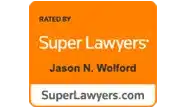California Tenant Law
San Francisco Tenant Attorneys
The Tenant Protection Act has been protecting tenants in California since it went into effect in 2020. This law provides protection in many areas such as evictions, rent control, and more.
In this article, we will explain how this law works and your rights as a tenant. As always, reach out to an experienced attorney if you need help.

over
35
years of experience in representing tenants.
State-Wide Eviction Protections
In response to a growing concern for affordable housing, California lawmakers passed new state-wide protections for tenants in 2019. The new law gives tenants in certain buildings both rent and eviction control. The legislation, known as the “Tenant Protection Act” or AB 1482, puts a state-wide limit on rent increases and also gives tenants eviction protections. The law became effective in January 2020 and could impact the lives of millions of renters throughout the state.
Is My Building Covered?
This law ONLY applies to tenancies not already covered by an existing local rent ordinance. Many cities around the Bay Area, including San Francisco, Oakland, and Berkley have their own local rent ordinances which apply to “older” buildings. For tenants in those buildings, nothing changes with the new state law.
The tenants who stand to benefit the most are:
- Tenants in cities/areas with no local rent ordinances; and,
- Tenants living in buildings built after 1979 but before 2006 (that is, buildings that are “more than fifteen years” old)
How Does Rent Control Work?
Landlords can now only increase rent on units by a certain amount each year.
Increases are capped at 5% per year + regional inflation (based on the regional Consumer Price Index or CPI), up to a max of 10%.
Previously there was no restriction on rent increases on a state level. That meant that a landlord could raise the rent however much they wanted. Tenants around the state can now rest easy knowing that their rent won’t double in a given year.
Landlords also cannot increase rent more than two times per year IF a tenant has lived in a unit for at least twelve months. For example, if your rent is increased twice, the percentage of the second increase will be calculated based on the original rent being charged at the beginning of the year.
One thing to note though is that once the last original tenant moves out, a landlord can charge a new tenant whatever rent they want.
What Buildings Does the Law Apply to?
The law provides protection to tenants living in apartments or multi-family buildings built more than 15 years ago. That means that newly built properties are exempted. Additionally, the law carves out an exemption, like in San Francisco, for single-family homes and condominiums – unless the building is owned by a real estate investment trust or corporation. Duplexes are also exempt if the owner lives in one of the units.
How Do the New Eviction Protections Work?
Much like the laws in San Francisco and other Bay Area cities, the new state law requires a landlord to have a “just cause” to evict a tenant from an affected property. Prior to the new law, landlords in cities without a rent ordinance in place could evict tenants without any reason at all provided it was not in retaliation.
Under the new law “just cause” evictions can be broken into two categories: “at fault” and “no-fault” evictions. “At fault” evictions include nonpayment of rent, criminal acts, and violating a “material” term of a lease. “No-fault” evictions include owner move-in evictions and the Ellis Act, among others.
One important thing to note is that tenants covered by the new law are only entitled to eviction protections if they have lived in the unit for a certain period of time. Eviction protection only applies once all tenants in a unit have resided in a unit for at least twelve months, or at least one tenant has lived there for twenty-four consecutive months. This means if a new person moves in, it could reset the tenants’ right to protection. For context, tenants in San Francisco are entitled to eviction protection if they live in a qualifying building for more than thirty days.
What Are My Rights if My Landlord Violates the Law?
Tenants who are wrongfully evicted or receive unlawful rent increases may have grounds to file a lawsuit against their landlord. Likewise, tenants facing eviction proceedings now have the ability to fight back. For example, a tenant who can prove they were given an illegal rent increase may be able to avoid eviction for nonpayment.
If you believe your landlord has violated the law, or if you are unsure if the new laws apply to you, contact a tenants’ rights attorney or legal aid organization for more information about your rights.
Get Started
For more information or to discuss your legal situation, call us today at (415) 649-6203 for a phone consultation or submit an inquiry below. Please note our firm can only assist tenants residing in San Francisco, Oakland & Berkeley.














